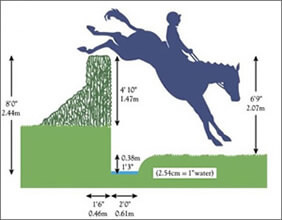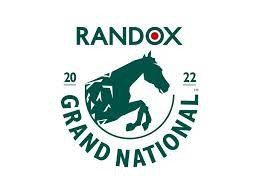How many women have trained a Grand National winner?
The short answer is four, although it’s important to note that the undisputed ‘Queen of Aintree’, Jenny Pitman, trained two winners. The redoubtable ‘Mrs. P.’, as she was affectionately known, shattered the glass ceiling when saddling Corbiere, ridden by a youthful Ben de Haan, to victory, by an ever-diminishing three-quarters of a length, over Greasepaint in 1983. Not satisfied with becoming the first woman to train the winner of the Grand National, twelve years later, in 1995, Jenny Pitman repeated the dose with Royal Athlete. Third in the Cheltenham Gold Cup two seasons previously, the 12-year-old was sent off at 40/1 at Aintree, but led for most of the second circuit and stayed on strongly to beat the 1992 winner Party Politics by 7 lengths.
It was another 14 years until Venetia Williams added her name to the Grand National roll of honour, courtesy of shock winner Mon Mome, in 2009. Beaten favourite in the Welsh Grand National at Chepstow the previous December, Mon Mome was sent off at 100/1 at Aintree after a run of indifferent form. However, under the late Liam Treadwell, he returned to form in no uncertain terms, leading soon after the final fence and drawing clear on the run-in to beat the 2008 winner Comply Or Die by 12 lengths.
Four years later, in 2013, Auroras Encore, trained by Sue Smith near Baildon, West Yorkshire, caused another surprise when defying odds of 66/1 to win the Grand National by 9 lengths under debutant jockey Ryan Mania. Four years later still, in 2017, the well-fancied One For Arthur, trained by Lucinda Russell, near Kinross in the Scotland, became the latest horse trained by a woman to win the Grand National, beating Glenfarclas Chase winner Cause Of Causes by 4½ lengths at odds of 14/1.
 The Grand National is run over two full circuits of a flat, triangular course, 2 miles 2 furlongs in extent. Often described as the ‘ultimate test of horse and rider’, the Grand National takes in a total of 30 distinctive, spruce-covered fences, 16 of which are jumped on the first circuit and 14 on the second.
The Grand National is run over two full circuits of a flat, triangular course, 2 miles 2 furlongs in extent. Often described as the ‘ultimate test of horse and rider’, the Grand National takes in a total of 30 distinctive, spruce-covered fences, 16 of which are jumped on the first circuit and 14 on the second. The standard each-way terms on any horse race are dictated by the number of runners and, once that number rises to twelve or more, by whether or not the race is a handicap. The Grand National is, of course, a handicap, in which a maximum of 40 runners are permitted to participate. Thus, if bookmakers apply the strict letter of the law, the standard each-way terms are the same as any other handicap with 16 or more runners; first, second, third and fourth place are paid, at one quarter of the win odds.
The standard each-way terms on any horse race are dictated by the number of runners and, once that number rises to twelve or more, by whether or not the race is a handicap. The Grand National is, of course, a handicap, in which a maximum of 40 runners are permitted to participate. Thus, if bookmakers apply the strict letter of the law, the standard each-way terms are the same as any other handicap with 16 or more runners; first, second, third and fourth place are paid, at one quarter of the win odds.